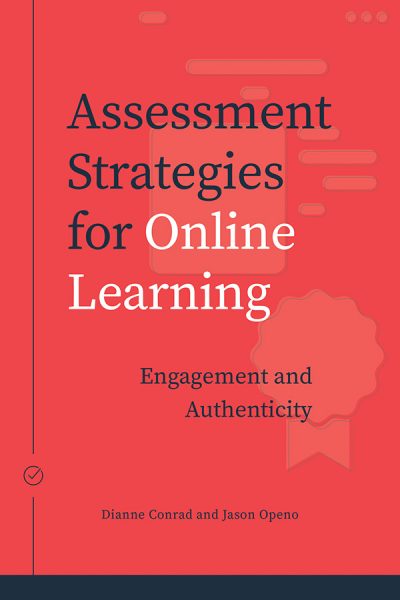Teaching Health Professionals Online Frameworks and Strategies
Sherri Melrose, Caroline Park, and Beth Perry

For many learners assessment conjures up visions of red pens scrawling percentages in the top right-hand corner of exams and feelings of stress, inadequacy, and failure. Although negative student reactions to evaluation have been noted, assessment has provided educational institutions with important information about learning outcomes and the quality of education for many decades. But how accurate is this data and has it informed practice or been fully incorporated into the learning cycle? Conrad and Open argue that the potential in many of the new learning environments to alter and improve assesment has yet to be explored by educators and students.
In their investigation of assessment methods and learning approaches, Conrad and Openo aim to explore assessment that engages learners and authentically evaluates education. They insist that moving to new learning environments, specifically those online and at a distance, afford educators opportunities to embrace only the most effective face-to-face assessment methods and to realize the potential of delivering education in the digital age. In this volume practitioners will find not only an indispensable introduction to new forms of assessment but also a number of best practices as described by experienced educators.
A practical, helpful and insightful book full of advice and support for the faculty member seeking to develop meaningful, authentic, formative and summative assessments for and of learning. Written by two of the most experienced professionals in ODFL in North America, the authors’ experiences shine through on every page – making this an immensely readable, useful, and practical collection of insights, practices, and suggestions.
Teachonline.ca
. . . challenges readers to consider their own understanding of online learning and the role of assessment versus a more traditional use of evaluation.
Canadian Journal of Higher Education
This work is licensed under a Creative Commons License (CC BY-NC-ND 4.0). It may be reproduced for non-commercial purposes, provided that the original author is credited.